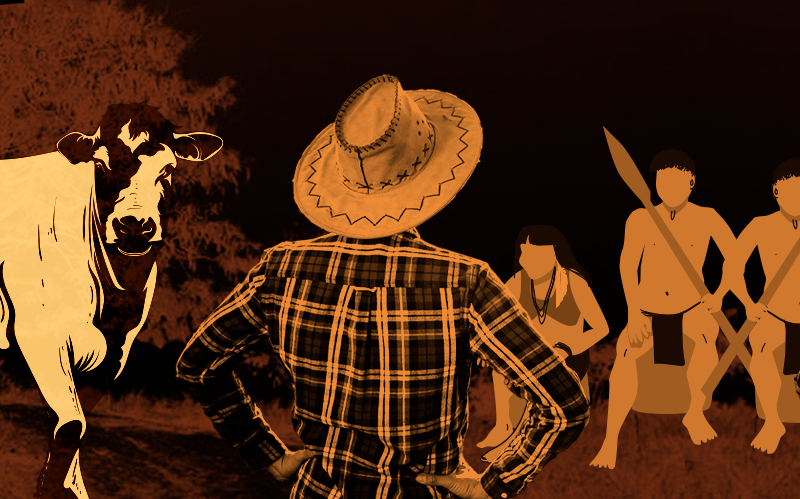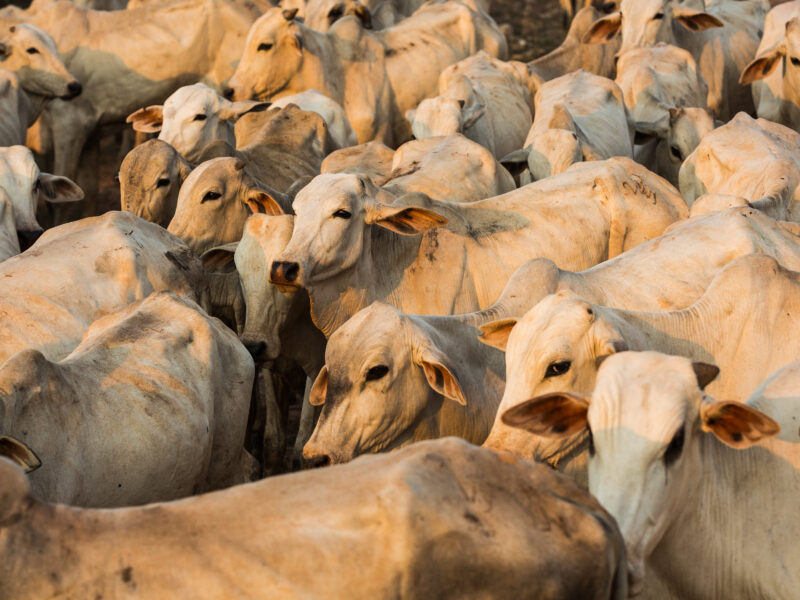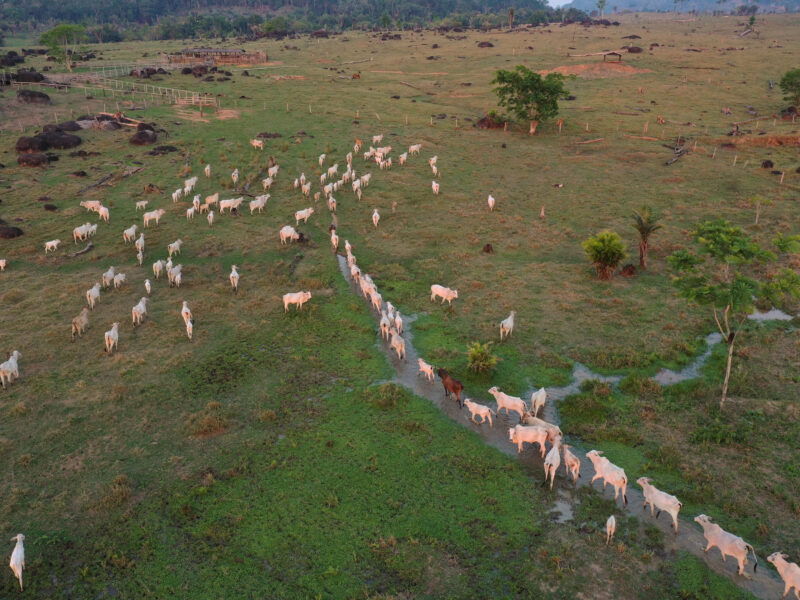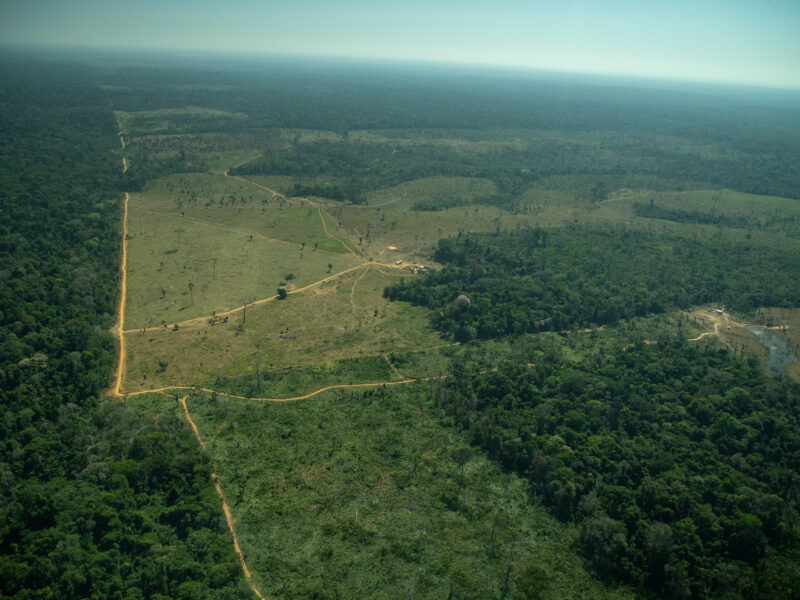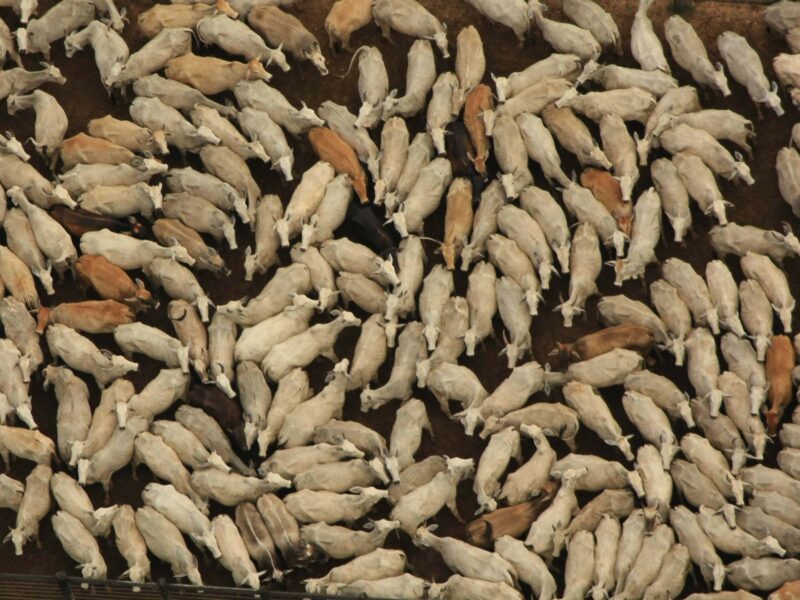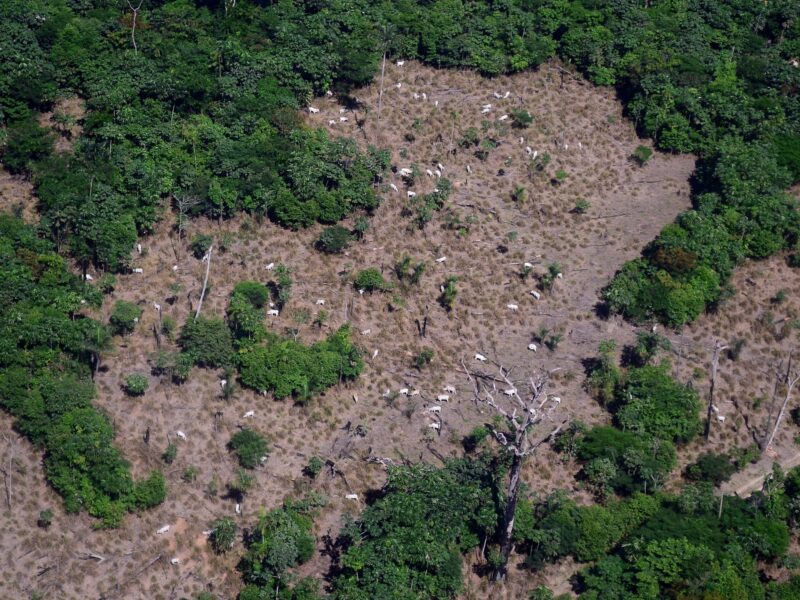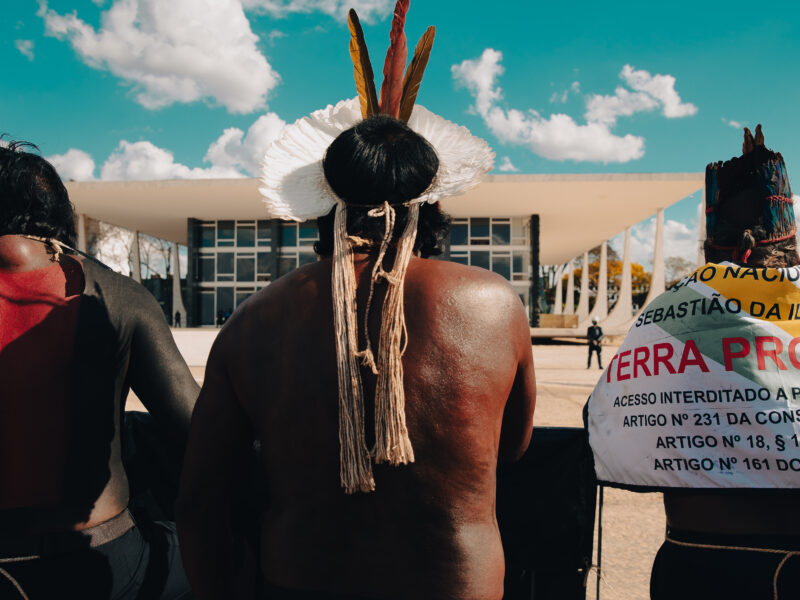A new investigation shows that farms located in the Uru-Eu-Wau-Wau Indigenous Territory in the Brazilian Amazon supplied two JBS meatpacking plants that sell beef to brands of the French supermarket giant.
Category: Cattle Ranching
The challenge of eliminating deforestation as demand for beef rises
Lula promises to eliminate deforestation by 2030, but projections from the Ministry of Agriculture indicate a 17% increase in beef production in the next ten years, which could lead to the deforestation of one million hectares per year until 2030. Alternatives to further clearing of the forest are the restoration of the pastures and an increase in productivity, allied with oversight measures that put an end to illegal land grabs.
Study reveals how Illegal cattle from Brazilian indigenous land goes to the shelves of French supermarket chain
A French court received new complaints in a groundbreaking lawsuit that investigates Casino Group for selling meat from indigenous lands. Organizations have traced herds from the Uru-Eu-Wau-Wau Indigenous land in Brazil and calculated compensation for social, cultural, and health damages
Regulatory distortions cause medium and large producers to snatch most of the public resources in the Amazon
A study by PUC-Rio shows that the application of public funds in the rainforest has been distorted and currently benefits mostly large-scale industrial farming.
COP26: Explosive herd growth in the Amazon challenges Brazil’s cut in methane emissions
The regional herd has grown by almost 1000% since the 1970s and today represents over 40% of the total national amount. Brazil signed a commitment to reduce 30% of its greenhouse gas emissions by the end of the decade and will have to review its cattle husbandry practice in forest areas.
Meat production in the Amazon should undergo thorough inspections
Agreements to regulate husbandry in Pará have advanced and serve as a model for adapting the production chains of other Amazonian states. Pará is the leader of the initiative.
Hemmed in by agribusiness, Xavante territory is hit by high Covid-related mortality rates
With pressure on their native land and traditional foods, agrochemicals polluting their rivers, and a high rate of chronic disease have left the Xavante people of Brazil’s Cerrado savanna vulnerable to the pandemic.


